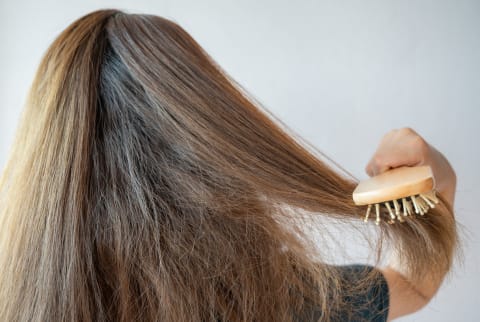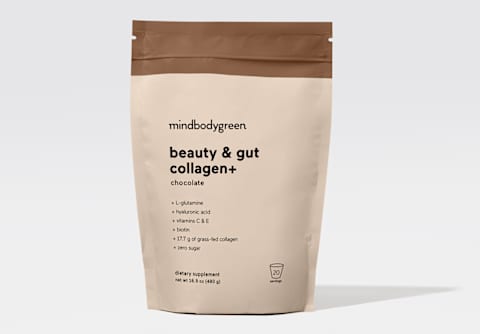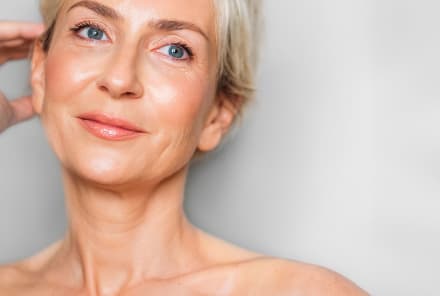Advertisement
3 Reasons Your Hair Is Shedding More Than Usual + How To Deal


Technically, you shed hair every day—about 50 to 100 hairs on average, in fact. But if you've noticed more strands falling to the floor lately, you might be playing detective to find out what's causing the sudden uptick.
Any increase in shedding can definitely spark some anxiety, so let us fill you in on a few (completely common) reasons you could be experiencing more hair loss lately and how to deal:
Seasonal changes
Consultant trichologist Anabel Kingsley and board-certified dermatologist Marisa Garshick, M.D., FAAD, previously shared a lengthy list of causes for increased shedding, one of which being seasonal changes.
Research on the topic indicates that most people shed more hair during the summer-to-fall transition period—however, this can certainly occur during any significant shift in weather.
Hormonal shifts & menopause
If you recently switched your hormonal birth control method, increased hair shedding is to be expected. This won't happen for everyone, but changing levels of hormones can impact your hair follicles and thus result in more shedding and overall hair changes.
On another note, hair loss often happens during menopause, which can start off as increased shedding. See, when someone enters menopause, their estrogen and progesterone levels start to vary and eventually decline.
"Studies have shown that decreases in these two hormones contribute to hair loss because they play a role in hair growth and the duration of time that the hair stays in the growth or anagen phase," biomedical doctor, hair expert, and founder of hair care brand Alodia Isfahan Chambers-Harris, Ph.D., previously told mbg.
To sum it all up: Hormonal shifts can lead to an uptick in hair shedding, so don't stress too much if you know your body is adjusting.
Stress
That brings us to the final common culprit: stress. While many people think stress will make your hair fall out all on the same day, that's not the case. In fact, it can take up to six months to see hair shedding from stress.
This makes it tricky to spot stress-induced hair shedding unless you know a significant stressful period or traumatic event occurred about six months ago.
How to deal
While the above triggers for increased hair shedding are completely common, it's still a good idea to tend to your scalp in the meantime. Below, three ways to do so:
- Use topical hair care: Keeping up with regular scalp care is essential to encourage growth and reduce hair shedding and loss. As a rule of thumb, treat your scalp more like your face than you do your strands—exfoliate weekly and always replenish hydration via scalp serums.
- Take a collagen supplement: Your hair is made up of keratin. For the body to build keratin, it needs several types of amino acids, many of which are found in collagen peptides1. So, consider adding a daily collagen supplement to your diet to support hair health—here's a list of a few A+ options, all backed by a nutrition Ph.D.
- Prioritize stress reduction: Obviously, this is much easier said than done. However, focusing on reducing stress in your day-to-day life will help decrease stress-induced shedding (and better your overall well-being). How you choose to blow off steam will naturally depend on your lifestyle, schedule, and what brings you joy. But if you need some inspiration, here are 10 natural ways to reduce stress to get you brainstorming.
The takeaway
You shed 50 to 100 hairs every day, but that number can go up during seasonal or hormonal shifts, or if you've gone through a period of high stress in the past six months or so. Not sure if it's simple shedding or actual hair loss? Scan this full guide for more clues.












